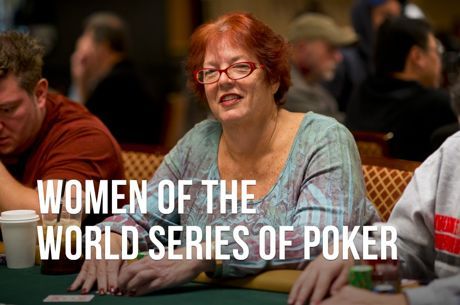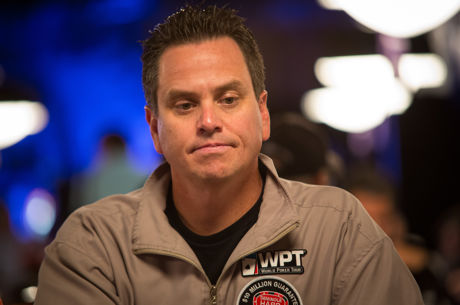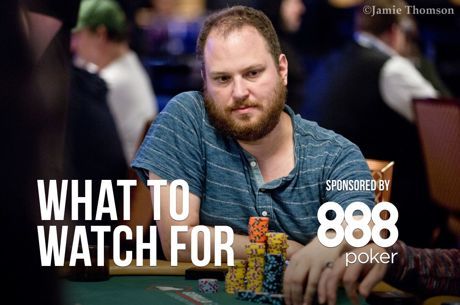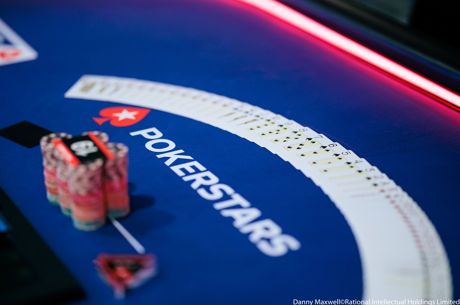TDA Summit Day 2: Savage Pleased as Changes Finalized

Table Of Contents
The poker Tournament Directors Association wrapped up its biennial summit with another six-hour session on Saturday. Some changes, including controversial ones, were either pushed through or will be implemented on an experimental basis, while others remain somewhat unresolved or won't be touched as the industry looks forward to two more years of poker until the next summit.
Decision on Announcing of Bets and Raises
Perhaps most significantly for players and staff, dealers will indeed be asked to count out bets and raises without player prompting. The idea was broached during Day 1 of the TDA Summit, and support for it was widespread among the TDs who had traveled to ARIA.
Despite some pushback on social media, board member Matt Savage, executive tour director of the WPT, said he's pleased to get the change into the TDA ruleset as a "recommended procedure." Savage said he heard the concerns but believes they're overblown, particularly after playing an experimental tournament at ARIA the night before using the rule.
"Clothing or other accoutrements must not continuously obscure player identity or become a distraction to the game."
"It really wasn't crazy," he told PokerNews. "For the most part, when it gets to a player, they'll look at a bet and say, 'How much is it?' They have to count it anyway.
"If people find out it's not working for them, they can go away from it. We'll see what we can do about a rule in 2021."
Savage reiterated that he believes it will keep the dealers more in tune with the game and improve counting skill among the less experienced dealers in the industry.
"It's gonna take some time for the dealers to get up to speed," he allowed. "I think once this starts to get going, people are going to say this is excellent."
Other Changes Locked In
A proposed change to do away with 10-handed final tables in nine-handed events passed into the rules, with the caveat that some rooms would need to look out for their bottom lines and combine at 10 if they needed the table open. The main reasoning behind the change is so the final two tables are balanced at five and five.
Language governing obscuring of a player's face was also hammered out:
"If people find out it's not working for them, they can go away from it."
"Clothing or other accoutrements must not continuously obscure player identity or become a distraction to the game."
Another set of changes passed which will govern only the way stud will be played.
First, the rule allowing big bets on fourth street in stud high when a player pairs his or her door card will be nixed. According to Savage, the idea was brought to him by Barry Greenstein, who Savage noted has likely played more hands of stud than almost anyone. The point of the rule was apparently for cash players to end the hand more quickly and get on to the next.
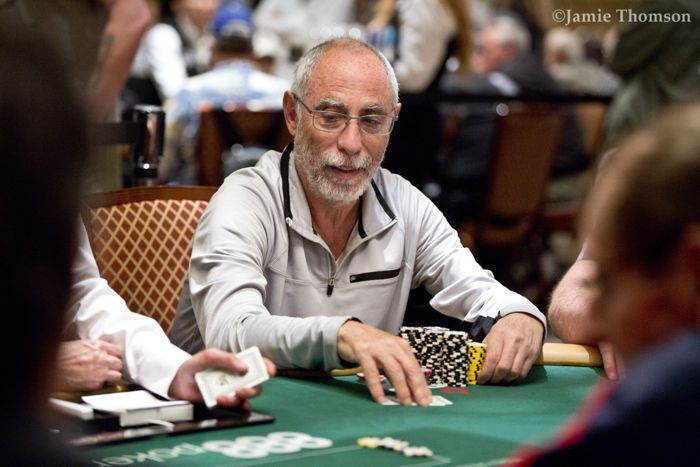
Second, seventh street will always be dealt face down now. Previously, if a player was heads up and his or her river card was dealt face up, the opponent's card was dealt face up also. Now, random card theory will apply and the deck will be reshuffled.
Finally, exposed cards on the initial deal that were supposed to be down cards will simply become up cards. According to Savage, the rule stemmed from people chafing at bringing in when they weren't "supposed to."
Savage said he expected more pushback on the stud changes since many of the players who play stud most frequently are veterans of the game who likely don't want to change after so many years of doing things a certain way. However, he said it was actually old-school grinders like Greenstein who badgered him about getting things changed, and there was no opposition to speak of outside of a bit of squabbling about random card theory and when it should be applied.
Big Blind Ante Nearly Resolved
The most pressing issue coming into the summit, which led off the board's discussions on Friday, was big blind ante best practices. Nearly everyone agreed to go with ante first and keeping the size of the ante the same regardless of table size, but there were still some holdovers.
One such holdover admitted he had been swayed.
"I've given it a lot of thought over the last 12 hours or so," said Kenny Hallaert, who was one of the lone voices for big blind first. "And I might go towards ante first."
The room broke out in applause but there continued to be a bit of dissent. Finally, Linda Johnson stressed that while big blind first was friendly to a short-stacked player, it was unfriendly to the rest of the players. Another TD concurred.
"Every single time that someone gets equity in the big blind that they shouldn't, they're taking it from everybody else"
"If you're going to let them get out of posting the ante, it's no longer equal to everybody," he said.
Justin Hammer echoed that as well.
"Every single time that someone gets equity in the big blind that they shouldn't, they're taking it from everybody else," he said.
Almost everyone was on board with language recommending ante first and not reducing at short-handed final tables, but that's all it can be for now: a recommendation. That's because, according to Savage, he still needs to sway the biggest name in the industry, the World Series of Poker and Jack Effel, a member of the TDA board who wasn't present either of the two days. The WSOP currently uses big blind first.
Savage said Daniel Negreanu has been "in Jack's ear" but seemed heartened that he had some advocates of his own in Johnson and Jan Fisher. He promised the others he'd talk to Effel and see if he could make him see the logic.
Until then, it wouldn't be written into the TDA rules as law.
Still, as a longtime advocate of not reducing antes and putting the ante in first, Savage counted himself pleased with the result.
The Partially Resolved and the Unresolved
A controversial issue that went minimally touched was the question of whether to force players to order their chips in stacks of 20. While most of the TDs seemed to be behind the idea on Friday, Savage said when he polled the masses, too many were unhappy with the potential change.
Instead, language will be written into the etiquette violations regarding "poor chip countability and visibility." It will be at the TD's discretion to determine whether a situation applies.
Reentry was also touched upon. One of the most debated topics in recent years, when it came up, Savage smiled and apologized to everyone for opening Pandora's box by bringing reentry to the forefront.
"Everybody's bastardized that into multiple reentries, Day 2 entry," he said. "That's not what it was designed for."
Unfortunately for Savage and other freezeout proponents, it appears the cat's out of the bag here. He suggested aiming for shorter registration times if multiple reentry was an option but admitted it's just not something the TDA can govern as venues have fallen in love with larger numbers and bigger guarantees brought about by reentry.
"If you don't continually give them something to play, they are going to leave your property."
Sean McCormack, ARIA's director of poker operations, said that he prefers freezeouts as a player but the bottom line in a crowded market like Las Vegas simply means he can't afford to run his room that way.
"I wouldn't be doing my job to let people walk across the street to Planet Hollywood or even up the street to Bellagio, our sister property," he said. "I think the two camps between cash and tournaments have separated a lot in recent years.
"Our retention rate is the best in the city but it's probably 15 to 20 percent. If you don't continually give them something to play, they are going to leave your property."
Finally, there was discussion on a standardized code of conduct, introduced by Katie Stone, to open up Saturday's conference, in an effort to make for a more welcoming environment to women. It's going to have to be room-specific, but the stress was on supervisors and TDs to craft an environment that would make women want to keep coming back.
Lupe Soto said that while poker is a "hostile game" by nature, there was a limit to how much foul language, abuse and discomfort to which a player should be subjected.
"We're not talking about church here, we get that," she said. "Raise the respect levels and raise the fun levels. And if we do those two things, we're going to raise the growth levels."

